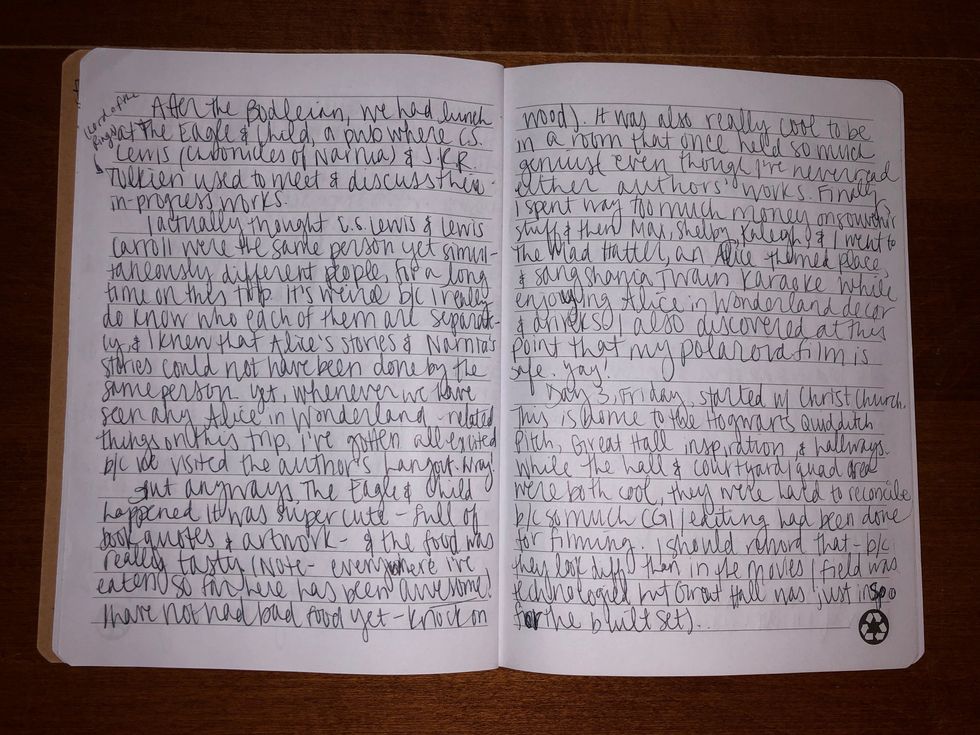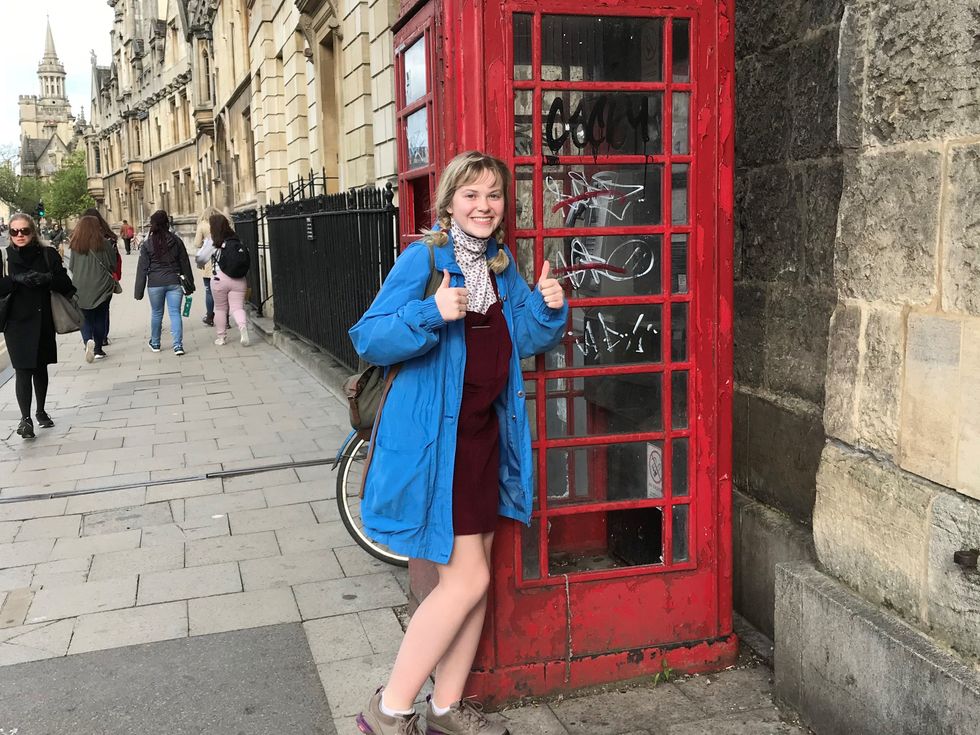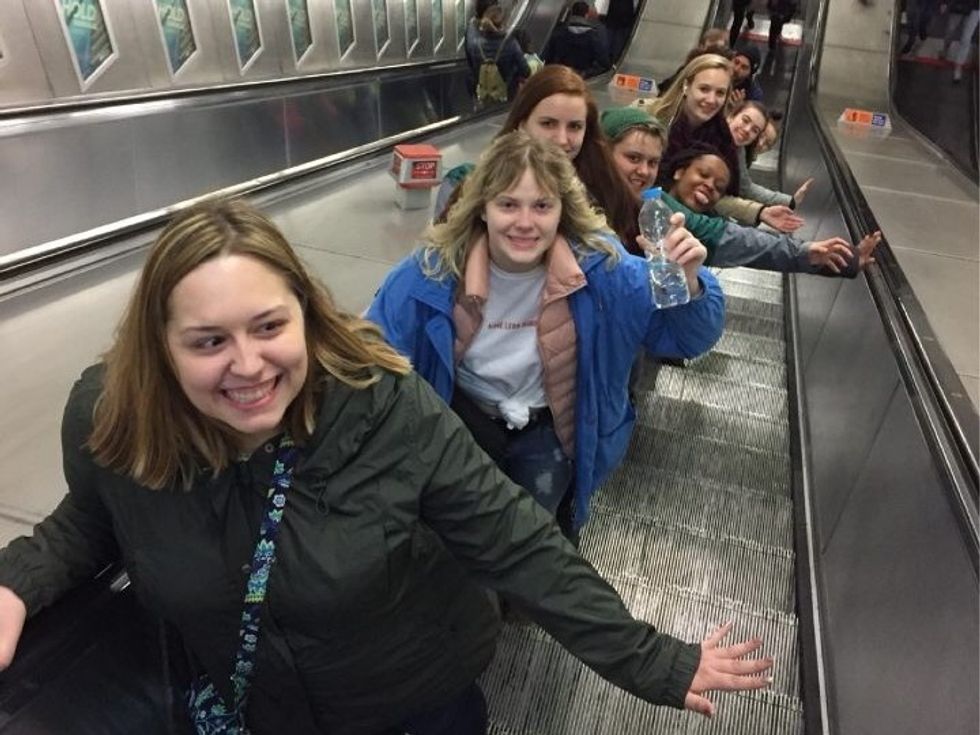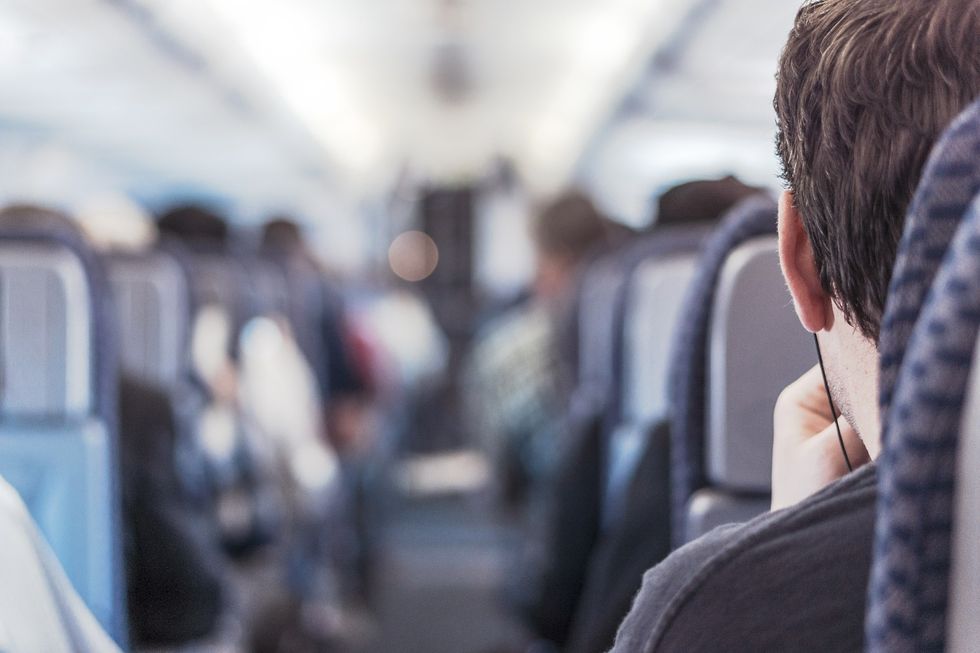I've been doing a lot of research about studying abroad in the past year. In April of 2018, I took a 10 day trip to Oxford and London through my school, Eastern Michigan University, to study literature and culture through the lens of J.K. Rowling's "Harry Potter" novels and their companion movies by Warner Brothers. Throughout the past two semesters, I've been planning a trip to Spain for a full school year to study business and Spanish language through International Studies Abroad at the University of Salamanca.
Between planning for these two trips, I've read countless articles, talked to several people, and received a ton of advice about studying abroad. It's hard to sift through everything you read and hear to determine what makes the most sense for your budget and timeline, but through my experience of both planning to be abroad and being abroad, here are eight things that I believe are truly important that you either won't hear anywhere else, or will hear a million times but might still try to ignore.
1. Pay for a data plan.
Data plans for international tourists are not cheap. As a frugal person going with a group to Europe for less than two weeks, I figured this was an expense I could skip, relying simply on the wifi at our hostel at the end of the night for my daily dose of Internet access. Fast-forward to me walking around the unmarked back alleys of London, crying, alone, trying to follow screenshotted directions from one friend group to another off of a friend's phone who did have data.
You may think that this goes to show just how spoiled our generation is, that I was hopeless and terrified without Google Maps. But the reality is that there will be times when you are traveling that paper maps can't get you where you need to go or show you where you are, when there will be no one around to ask for directions, and when it is safer to look like you know where you're going than to be pouring over maps or asking around. Don't get stuck in this situation: shell out the $10/day, or if you're going for a longer trip, switch out your sim card.
2. Keep the damn journal!

Being able to look through my travel journal when going through pictures or telling stories helps me remember so many more details and feelings from when I was in the moment.
Photo courtesy of the author, Eva Koelzer
If you've studied abroad or are planning to, you've heard it before: "Keep a travel journal." Whether you're resistant to the idea because it sounds like a lot of work or sounds lame, or because you're currently abroad and taking time to write feels like you're taking time away from your adventures, I completely get it. But I promise you, you will regret not having notes when you get home!
Notice I say "notes." Your journal doesn't have to be anything special. There's no need for an immaculately-decorated bullet journal (although if this is your prerogative, go for it!), or even full journal entries. You can make quick notes throughout the day on a scratch pad or in your phone of the scandalous story behind that royal family portrait and the way that the light shining through that stained-glass window in the cathedral made you feel. Without these notes, the most meaningful parts of your trip ("I had the most amazing dish...) will be completely lost on you when you return ("...if only I could remember what it was called...").
3. Check a local weather app.

Posing by one of the famous red London telephone boxes in...Oxford.
Photo courtesy of the author, Eva Koelzer
Take a look at my outfit in this picture compared to the people behind me: bare legs and a light jacket vs. long pants, coats, and gloves. I really missed the memo, right? Actually, when I checked the weather on my iPhone app while packing for this trip, I was promised temperatures in the 70s and sunny skies! I took this with a grain of salt since I was traveling to the United Kingdom, known for its rainy climate and chilly springs. I brought water-proof tennis shoes, an umbrella, and a light spring jacket, and then packed mostly shorts, skirts, and short-sleeved shirts with one pair of longer jeans.
Despite checking the weather and packing a variety (or so I thought) of clothing options, we experienced one day of rain during our entire trip, hardly any sun, and temperatures in the 40s and 50s. I ended up wearing my jeans every day after the first day (when this photo was taken) and buying a second jacket from a used clothing store in London. I explained to my professor that I truly had checked the weather before coming, and she suggested using a local weather app next time for better results.
I have since researched this and found a lot of support on the Internet for international apps like The Weather Channel and WeatherBug but after my fashion flop in England, I would highly recommend at least comparing an international app with a regional app. You can find regional weather apps by searching for "top weather apps in [insert country or region here]." This search will show you the top-rated weather apps in the location you are headed to, so you'll know that the information is trustworthy.
And, just to be safe, always pack a couple of extra pieces that don't correspond with the weather report, and have money set aside for unexpected weather purchases like a sun hat or a coat and gloves.
4. Research bathroom culture in your host country.
When you gotta go, you gotta go. Make sure you know how. The bathroom is one cultural element that varies a lot from place to place. And it's not always the first thing you'd expect to be different when you're planning a trip to a foreign country.
In England (and in several other European countries), it costs a fee to enter public restrooms. Had I not known to hold onto my 10 and 20 pence coins for train stations, I may very well have been unable to use a bathroom until after reaching our final destination hours later.
Now that I am planning for a trip to Italy after finishing the school year in Spain, I have been looking a lot at bathrooms found in Airbnbs. I kept finding myself confused as to why there were two toilets in all of the pictures - one with a lid and one without. I determined that the lidless companion toilet was the European version of a urinal until my travel companion kindly pointed out that I was actually looking at a bidet.
Other bathroom variations around the world include the BYOTP-situation and the literally-just-a-hole-in-the-ground. Make sure you're prepared with this starter international bathroom guide by Travel Channel.
5. Prioritize sleep.

Riding the escalator in one of the London Underground stations on our last day in England.
Photo courtesy of the author, Eva Koelzer
I am the second person from the top in this photo. See the dead in my eyes? That's because I spent the three days leading up to this picture exhausted and sick - sick enough to miss a trip to Abbey Road and a Jack the Ripper tour so I could take a six-hour nap. I am still kicking myself for missing those activities, but I needed to sleep. My voice was gone and I had a killer sinus headache and swollen lymph nodes.
Could this have been prevented, you ask? Yes, I believe it could have. The first few nights of our trip I felt invincible and high on life, and the spent the nights out late or up late talking and laughing with my roommates. We had early morning activities every day, so had I made myself go to bed early and actually slept for a few hours each night, I would have had a much better shot at fighting off any sicknesses headed my way.
The main reason that any study abroad student would dismiss the importance of sleep is to make the most of the time they have to spend in their host country. But be warned: by doing so, you may end up losing out on more time later when you're too exhausted or sick to do anything. Travel exposes your body to new germs that it's not used to fighting and lack of sleep weakens your immune system, allowing those germs to make you sick. So sleep well and avoid losing out on your trip later!
6. Learn a few key phrases in surrounding languages.
Even in a country where your native language is spoken (such as English in England), it is good to be able to get by using a bit of language from neighboring areas. Being in a tourist town (London, in my case) means that you'll be surrounded by other tourists. Sometimes, other tourists come from surrounding countries or regions which may speak different languages. While we were in London, I did not meet another English speaker except staff members at restaurants, tours, and lodging.
Everyone else around us spoke a multitude of other languages, and no one in our group had a clue what anyone was saying. I imagine that most of these people also spoke English and could have helped us if we needed it, but whether this is true or not, it's always best to be able to at least attempt to speak with others in the language they are speaking in. You'll seem more friendly and trustworthy and less like an arrogant American if you can give at least a "Hello, pardon me..." in a speaker's language before asking for directions or whatever else in English.
7. Take safety seriously, especially when alcohol is involved.
Another thing that students studying abroad hear all the time, especially if they are under 21, is to be careful while drinking in other countries. Usually, this is a piece of advice given by parents or school advisers and sounds like a formality to students. As a student, I say: listen to your parents and advisers! It's hard enough to stay safe abroad. You've got to worry about getting lost, pickpockets, and not understanding cultural norms which could put you in uncomfortable situations.
Why make it harder for yourself by adding on the hindrance of carelessness mixed with intoxication? I'm not saying you shouldn't take advantage of the phenomenal wine, beer, and liquor varieties that the world has to offer, or the newfound freedoms that you have if you are underage in the States. All I'm saying is that it will pay off to go about drinking safely. Get started with my six-step plan for staying safe while drinking abroad!
8. Consider spending more for a comfortable plane ride.

Another $200 for an extra foot of legroom doesn't seem worthwhile...until you're on the plane, wishing you could give anything for exactly that.
I am the queen of sacrificing basic comforts to save money for better travel experiences, so believe me, I get it if you want to stay with your basic economy fare. But if your plane ride is six hours or more, especially if you've never flown on such a long ride before, I would highly recommend taking some time to research and consider sitting in a more expensive seat.
While on my flight to England, which was direct, seven and a half hours long, and my first ever flight over three hours long, I flew in the cheapest seat possible and experienced serious cabin fever. I was in a middle seat and had about nine inches of legroom. Luckily, I'm pretty short, but even so, it was not a comfortable place to be for a third of a day. It was an overnight flight and I was able to fall asleep, but I couldn't stay asleep for more than an hour or so. I kept waking up in a panic, feeling like I had to get out of my seat or I would go crazy. I took a lot of trips to the bathroom just to stretch my legs and keep the circulation flowing in them.
This is not everyone's experience, of course, and even if it is, it may not be enough to make you upgrade your ticket to the next level. It's important to think about it, though. Several hours on a flight where you're packed in like sardines can make you sore and tired, and it can even negatively impact the first couple of days of your trip, which is a big deal if you're going for a short while. Make sure you can get by, or start saving an extra hundred or two hundred dollars to make your experience a little bit more comfortable.
Studying abroad is an amazing opportunity to build your resume, experience and learn about other cultures, further your language skills, gain independence and confidence, and even go to school for cheaper (if you study in a place where the cost of living and tuition is low). You'll have a memorable trip full of growth no matter what, but if you follow these eight tips, you'll be even safer, more comfortable, and better prepared for a great experience than you would have. Happy travels!
- Tips for Studying Abroad ›
- 7 important tips before leaving to study abroad. ›
- 10 Tips For Getting The Most Out Of Studying Abroad ›
- 14 Tips For Studying Abroad ›
- 8 Tips For Preparing To Study Abroad ›
- Important Tips For Study Abroad Students ›
- 6 Steps To Alcohol Safety When Studying Abroad | The Odyssey Online ›
- Studying abroad? Here are the top tips from student travelers ›
- Tips For Studying Abroad | My Best Advice For Students Studying ... ›
- Top 10 Study Abroad Tips | Study Abroad Guide ›
- How to make the most of your study abroad trip: 10 tips ‹ GO Blog ... ›
- 10 Common Mistakes Made While Studying Abroad | Go Overseas ›
- 8 Quick Study Abroad Tips You Need to Know ›
- 28 Essential Tips for Weekend Travel While Studying Abroad | Go ... ›
- 50 Things I Wish I Knew Before I Studied Abroad ›
- 19 Study Abroad Tips That Are Actually Helpful ›
- Your New Study Abroad Checklist + Tips to Prepare ›





















